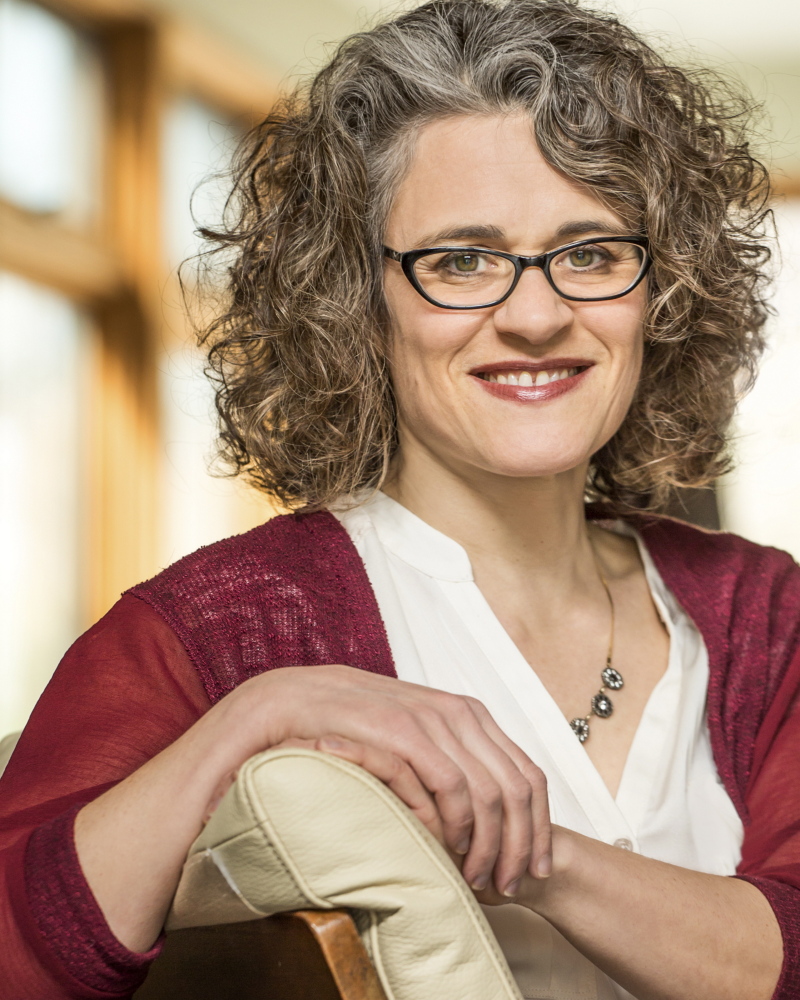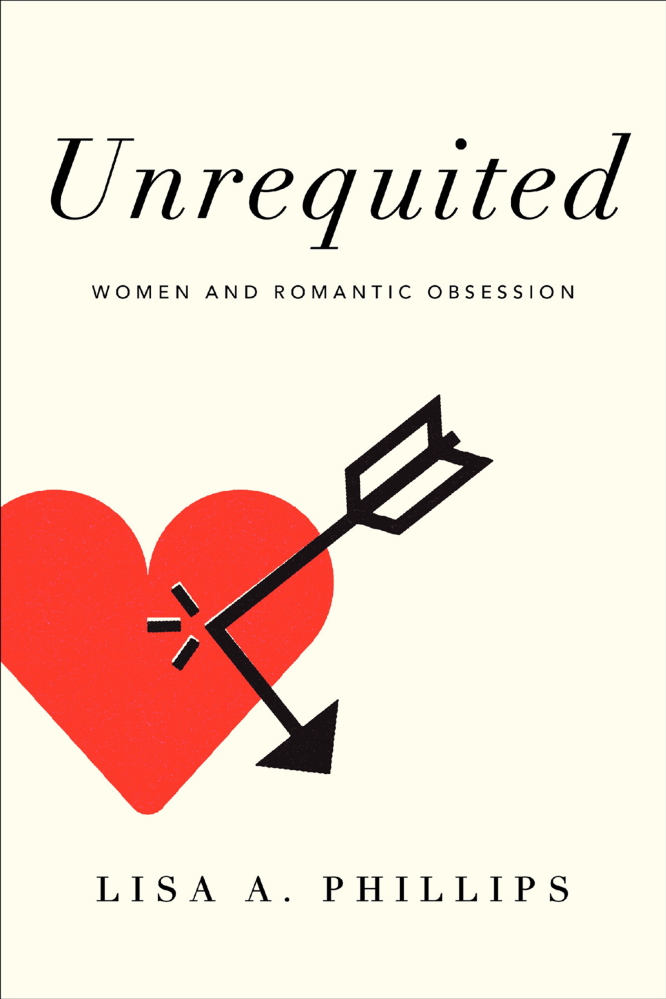There are certain experiences in life that are just so searing, so excruciating, and so humbling, that we only dare confess them to our closest confidantes.
Loving someone who doesn’t share our feelings, or having moments (and we’ve all had them) when we let our passions drive us across the line of civil behavior are far too embarrassing to share with the world via Facebook or Twitter – much less commit to print.
But in “Unrequited,” author Lisa A. Phillips and scores of other unrequited lovers bravely visit this territory where so few others do.
Phillips recounts how, when she was 30, she took her yearning too far. She fell in love with someone who didn’t return her feelings. She became obsessed, followed him, and called him obsessively. One day, after she snuck into his apartment building, he picked up a baseball bat to protect himself and threatened to dial 911.
Phillips uses this experience as a jumping off point to explore the psychological, historical, and cultural factors that shape the behavior of those whose love isn’t returned. Her sweeping survey, which includes the stories of other men and women who have experienced unrequited love, also traces how the theme plays out in literature.
Phillips, who lives in Woodstock, New York, and teaches journalism at the State University of New York in New Paltz, will be speaking about her work at the Portland Public Library on Friday, and is scheduled to do an interview on MPBN’s “Maine Calling” show on Tuesday.
Phillips recently spoke with the Maine Sunday Telegram about her book.
Q: How did you go from your experience of unrequited love to deciding to share it with the world, and write a book about it?
A: For many years I felt very disassociated from what happened during the time of my obsession. Once it was over, I just wanted to move on. I met my husband pretty soon after and my life changed a lot. I went from being a grad student who wasn’t sure what the next steps were to someone with a full-time job in a serious relationship. We were living in a lovely yet prim rural community with lots of young families. We had a daughter, and there didn’t seem to be a lot of room, both inside myself and in the world I was living in, to give voice to that emotional tumult I’d felt years ago over my unrequited love. So I didn’t talk about it for a while. And then I began to feel as if the people around me didn’t really know me because they didn’t know about this part of my past. And how much did I know myself if I was so disassociated from this? So I began to write about this rather fierce experience of unrequited love.
I also thought about everybody else out there who feels ashamed of feeling hung up over a remote or withholding beloved. I wanted to do more than share my story. I wanted to (learn) why unrequited love and romantic obsession occur and whether these intense mind states can be, in some way, redeemed. What lessons can we learn from these experiences? I first put words to the page in 2003, the year before my daughter was born, and five years after the time of my obsession. Then I published an essay in 2006 in The New York Times’ “Modern Love” column. I started writing the book in earnest in 2008. I share these time markers because I really needed to give this project a lot of space and time – plus other life demands were going on outside of it, with raising my daughter and teaching, a job that was very demanding. I also think that space and time provided a real cushion for me, emotionally – I was writing about something that happened now 17 years ago, and I was in a much different place emotionally, professionally and personally.
Q: Were you worried about what kind of response you’d get?
A: I had been so fearful of a negative critical response. Often when women writers take on experiences that are taboo they can get castigated in the media. But I didn’t get any scalding reviews. More importantly, readers write to me out of the blue to tell me how important this book was for them, to have a book that spoke to the struggle that they went through. Those letters are very meaningful to me because it shows that the book is reaching people who need it.
Q: You write a lot about how unrequited love can feel like a kind of slavery. At one point, a woman describes how her love “ate up years of my life and energy. My life had become sad and small due to my obsession.” In a way that is much like the experience of anyone who assigns self-worth to something outside of themselves – work, looks, weight or social status. Do you think that the forces that drive people over the line in unrequited love are also the same forces that cause people to get obsessed with those other factors?
A: Obsession is an interesting adaptation. It can move us into really awful, distracted mind states and then it can be precisely the push we need to find our power and focus. When I was in obsessive unrequited love, I did throw away months of my life. I was supposed to be finishing a book and teaching and I could barely concentrate long enough to take off my shoes. But when I think back to the past few years, what kept me going through writing this book while having a full-time job and raising a child was the obsession that I’ve got to do this and get it right. It was a healthy obsession in that way. But yes, obsession is complicated. Many of us know someone who is shutting down other parts of life to make way for an obsession. It may be that workaholic who’s getting a divorce because he’s neglected his family life, or someone too consumed with weight and tilting into a dangerous eating disorder. All of this is obsession. What’s mysterious is what makes some people use it productively with some degree of perspective and what makes some people give themselves to it to the point where lives, opportunities or relationships are lost.
Q: How did writing about unrequited love, and understanding its cultural roots, biological, and neurological correlates impact how you now relate to that experience?
A: Do I understand myself better now? I think so. The goal-linking element was pretty intense for me. I was turning 30 with very little that was stable in my life: I had a temporary job, no partner and a lot of questions about where I was going to live and what I was going to make of my life. I had an unfinished novel and knew the prospects for publishing it weren’t great. Many of my friends and relatives were getting settled in marriages and raising families. I badly wanted lasting love and a family, but I was ashamed of those desires. I was a feminist, and I felt I shouldn’t be so messed up about “wanting a man.” So the man I loved suddenly became the embodiment of ALL of this stuff – what a thing to do to someone! And he was in another relationship and couldn’t be that person for me.
Jennifer Van Allen is a freelancer based in the Portland area. She can be reached through jenvanallen.com.
Send questions/comments to the editors.




Success. Please wait for the page to reload. If the page does not reload within 5 seconds, please refresh the page.
Enter your email and password to access comments.
Hi, to comment on stories you must . This profile is in addition to your subscription and website login.
Already have a commenting profile? .
Invalid username/password.
Please check your email to confirm and complete your registration.
Only subscribers are eligible to post comments. Please subscribe or login first for digital access. Here’s why.
Use the form below to reset your password. When you've submitted your account email, we will send an email with a reset code.